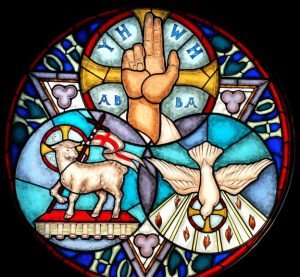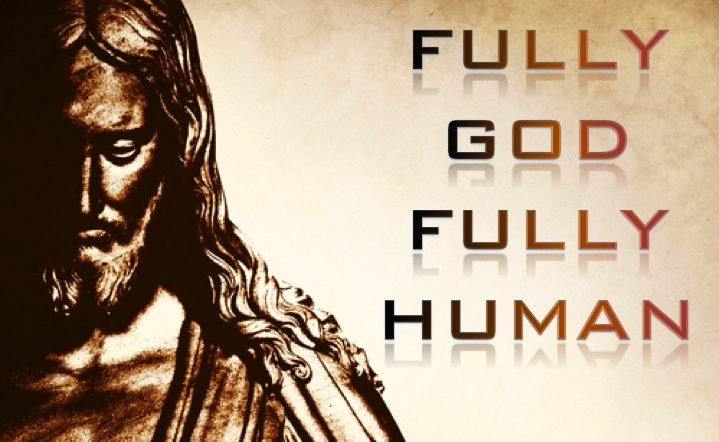A series about critical doctrines you must not deny or change
“Go therefore and make disciples of all nations, baptizing them in the name of the Father and of the Son and of the Holy Spirit,” (Matt. 28:19 ESV)
Over the past few days
I’ve been discussing doctrinal errors held by the many Progressive Churches around the world who have redefined many church doctrines to reflect their new unbiblical beliefs.
The denial of the Trinity
The denial of the Trinity naturally follows the denial of the deity of Jesus, which we discussed yesterday. Progressive Christians often go even further by supporting a pantheistic worldview, which maintains that the universe itself is God. Some promote panentheism, which maintains that God and the world are intertwined and that God and all things are one. In every way, this is false, confusing, dangerous, and completely unbiblical.
So, what is The Trinity?
First of all, let me begin by saying that no human being will ever be able to fully comprehend or even articulate the concept. We cannot truly understand God because He is incomparably more powerful than us. But clearly, the Bible teaches that the Father is God, that Jesus is God, and that the Holy Spirit is God.
Metaphors aren’t adequate
I’ve heard pastors use different metaphors to explain the trinity. For example: Water has three forms—as liquid, ice, and steam; an egg has three parts—the outer shell, the white, and the yoke. There are others, but all metaphors fall short and cannot adequately explain it. The trinity is described by many Bible scholars as God’s mystery.
God exists as three distinct, simultaneous persons
The word “trinity” is not in the Bible but is a term used to denote the Christian doctrine that God exists as a unity of three distinct, simultaneous persons: Father, Son, and Holy Spirit. Each of the persons is distinct from the other yet identical in essence. But, even though the word trinity is not in the Bible, the three-in-one concept is demonstrated from cover to cover.
The following are just a few of the many Bible passages about the Trinity
· God referred to in plural
God said, “Let us make man in our image, after our likeness.” (Gen. 1:26)
“Then the Lord God said, “Behold, the man has become like one of us in knowing good and evil.” (Gen. 3:22 ESV)
“Come, let us go down and there confuse their language, so that they may not understand one another's speech.” (Gen. 11:7 ESV)
· The Father referred to as God
“One God and Father of all, who is over all and through all and in all.” (Eph. 4:6 ESV)
“Our Father, Who art in heaven,
Hallowed be Thy Name.” (Matt. 6:9)
· The Son referred to as God
“Behold, the virgin shall conceive and bear a son, and they shall call his name Immanuel” (which means, God with us).” (Matt. 1:23 ESV)
“For to us a child is born, to us a son is given; and the government shall be upon his shoulder, and his name shall be called Wonderful Counselor, Mighty God, Everlasting Father, Prince of Peace.” (Isa. 9:6 ESV)
“Jesus said to him, “Have I been with you so long, and you still do not know me, Philip? Whoever has seen me has seen the Father.” (John 14:9 ESV)
“He is the radiance of the glory of God and the exact imprint of his nature, and he upholds the universe by the word of his power. After making purification for sins, he sat down at the right hand of the Majesty on high,” (Heb. 1:3 ESV)
“Waiting for our blessed hope, the appearing of the glory of our great God and Savior Jesus Christ,” (Titus 2:13 ESV)
“But of the Son he says, “Your throne, O God, is forever and ever, the scepter of uprightness is the scepter of your kingdom.” (Heb. 1:8 ESV)
“And we know that the Son of God has come and has given us understanding, so that we may know him who is true; and we are in him who is true, in his Son Jesus Christ. He is the true God and eternal life.” (1 John 5:20 ESV)
· The Holy Spirit referred to as God
“But Peter said, “Ananias, why has Satan filled your heart to lie to the Holy Spirit and to keep back for yourself part of the proceeds of the land? While it remained unsold, did it not remain your own? And after it was sold, was it not at your disposal? Why is it that you have contrived this deed in your heart? You have not lied to man but to God.” (Acts 5:3-4 ESV)
“Now the Lord is the Spirit, and where the Spirit of the Lord is, there is freedom.” (2 Cor. 3:17 ESV)
· Two or more referred to as God
“Go therefore and make disciples of all nations, baptizing them in the name of the Father and of the Son and of the Holy Spirit,” (Matt. 28:19 ESV)
“I and the Father are one.” (John 10:30 ESV)
“And it is God who establishes us with you in Christ, and has anointed us, and who has also put his seal on us and given us his Spirit in our hearts as a guarantee.” (2 Cor. 1:21-22 ESV)
“Now there are varieties of gifts, but the same Spirit; and there are varieties of service, but the same Lord; and there are varieties of activities, but it is the same God who empowers them all in everyone.” (1 Cor. 12:4-6 ESV)
“Have this mind among yourselves, which is yours in Christ Jesus, who, though he was in the form of God, did not count equality with God a thing to be grasped, but emptied himself, by taking the form of a servant, being born in the likeness of men. And being found in human form, he humbled himself by becoming obedient to the point of death, even death on a cross.” (Phil. 2:5-8 ESV)
Therefore
“For in him the whole fullness of deity dwells bodily,” (Col. 2:9 ESV)









